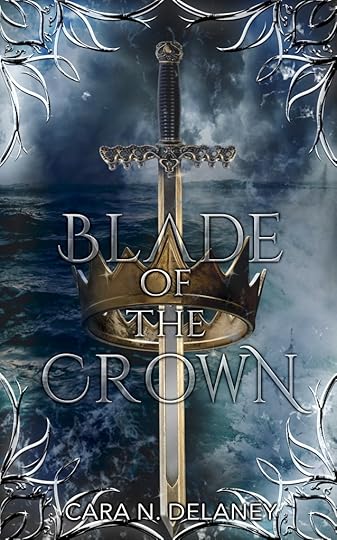Finding success, growing your audience, and accepting bad reviews
 Image by Gerd Altmann via Pixabay
Image by Gerd Altmann via PixabayGetting a bad review sucks. I’ll say this right now, I get it. That’s why I don’t really read reviews anymore. I used to, over a decade ago, but not these days. Why? It’s no use. People will think what they think, they can review at their leisure, and there is nothing I can do to influence either their opinion or their review behaviour. Nor should I be trying to. The purpose of reviews is to present reader opinions across the whole spectrum, and that spectrum naturally has a lower end we shouldn’t pretend doesn’t exist. So unless I want to spend the rest of my career stressing over review scores and ratings, the only thing I can do is unplug and ignore them.
…what does this have to do with growing your audience as an author? A hell of a lot.
If you go out there and check any wildly successful book – indie or self-published or traditionally published doesn’t matter – you will see that it has low ratings and negative reviews. Usually more one-star reviews than the average indie author has total. And yet, these books thrive, and are commercially successful.
Conversely, an attitude that is prevalent among indies is that they don’t want negative reviews, ever. That they are a mark against the author, that they impact sales, that they are not deserved because by god, we worked so hard on this book, it’s not fair to give it two stars! On an emotional level, I understand this. On a practical and business level, this attitude is a hindrance more than anything. At the risk of sounding like some sort of guru: If you hold on to this mindset, you are preventing yourself from finding the success that you want.
You have, broadly speaking, two options to go about finding an audience for your book (or rather, have the audience find you). You can either try and match the perfect reader to your book – someone who you are 100% sure will love and appreciate every single aspect of your book, and thus have no reason to give it anything other than five stars. Or you can appeal to a much broader audience – trying to match individual aspects of the book with readers who are looking for romance, or dragons, or queer protagonists, but maybe not all three – and then hope that the rest of the book is not a barrier to them buying and enjoying it.
(To be clear, I am not talking about deceptive marketing here. Don’t lie about stuff. All I’m saying is that hyper-specificity is not the goal of this second approach, casting a wider net is.)
Many indie authors like the first approach more. They prefer readers who are into every single thing about their book. Which, on paper, sounds good. The problem is that, in that sense, most books are incredibly niche. Yes, even the ones that sell millions of copies. Why? Because there is no such thing as a perfect book. Every single one of those millions of readers will dislike something about the book (or at the very least feel very meh about it). It is impossible to have a near-perfect overlap between “things in the book” and “things the reader likes”. So in order for this to work, authors have to limit themselves to a tiny audience with the largest possible overlap.
Because in the second approach? The one that will allow you to reach more people, to find more readers, to grow a larger audience? You will receive negative reviews. That’s a given. There’s no avoiding it. Because once you grow past that tiny niche, once a larger audience engages with your work, you’re bound to have readers who pick up your book and end up disliking it. It’s really just a numbers game at this point. Ten hand-selected readers may universally love your book, but with ten-thousand readers, you’re going to get a few hundred at least who absolutely hate it. And that’s fine. That’s a part of this business that, if this kind of growth and success is your goal, you will need to accept. And yes, there will be mean reviews. There will be bad-faith criticism. There will even be personal attacks (there shouldn’t be, but that’s the world we live in). That is why you should not read the reviews. But you need to accept that, if you ever want to grow beyond your tiny niche, they will happen, and there is nothing you can do about it.
This is a large stress factor for many indie authors. It sucks. It’s draining. And it does not need to be this way. Accepting negative reviews as part of growing my career has been vital for preserving my sanity. I just can’t be arsed to constantly worry about this, to stress about the average score, about every one-star rating that pops up somewhere. There are so many other things to stress about, I needed to take this off my plate, and it was glorious! It takes so much energy to worry about this that I can now use to write more books. To do fun stuff for my socials. To read other people’s books without constantly comparing them to mine.
As per usual, none of this is one-size-fits-all advice. At the end of the day, you as the author have to decide what your career goals are. If you’re happy in your perfect niche, that’s great! More power to you! But if you want to step out of it, if you want to find that wider readership, you need to accept what comes with that – in this case, the bad reviews. Take steps to mitigate the stress if you have to, but know that the stressor itself will never not be there. You just have to manage it in a way that is healthy for you. Because I don’t want great indies to burn themselves out with stress over things that are, ultimately, largely meaningless.
– Cara
BLADE OF THE CROWN is available in paperback and through Kindle Unlimited! Get swept away with a princess and her royal guard as they find themselves stranded on a strange island, trying to find their way home – and into each other’s arms.




